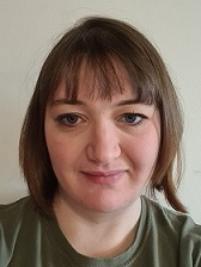
The Distributed Algorithms CDT has a new PhD project with Leonardo, co-supervised by David Greig.
Machine Learning of Behavioural Models for Improved Multi-Sensor Fusion
Become an expert in multi-fusion data research and help Leonardo to take their research to the next level. Become a future leader in data science by working with an important and innovative company, whose essential work helps to keep the UK safe from threats.
"Maintaining security in an increasingly complex world requires increasingly complex solutions. The students at the CDT are embracing the latest methods in algorithm development and data science to solve real world problems.”
- David Greig, Lead System Engineer, Leonardo UK
The Distributed Algorithms CDT’s mission is driven by the needs of our industrial and governmental partners. Some CDT’s PhDs explore challenges of defence and security sector to better protect the world's population from threats. An example of this research is using simulated and real data to better understand threats to help provide data-driven optimisation and high-performance computing efficiency that facilities improved decision making.
The CDT has a partnership with Leonardo, who’s main work is developing multi-domain capabilities in the aerospace, defence and security sector. We have two PhD students who are working with Leonardo to solve tough challenges via their work, which is focused on detection and sensor data and the creation of algorithms to use data more efficiently to help Leonardo develop their line of electronic sensing products and systems, such as multi-function radars and electrooptical sensors for airborne and maritime platforms, e.g., Apache helicopters, Eurofighter Typhoon.
Distributed Algorithms CDT Collaboration
Collaboration is a key theme at the CDT; not only does each PhD student work with a partner from industry or government, they are also supervised by two leading academics from the University of Liverpool, who have data science and computer science backgrounds, experience and knowledge. Another key element is the CDT cohort environment, meaning each PhD student works alongside other PhD students, all working on similar problems. Although working with partners, data science and computing are the three main threads running through the CDT, each PhD project is unique. (You can view all current projects here).
Main aims of this PhD
This exciting research will help Leonardo to seek and adapt novel techniques to the learning of behavioural models from historic multi-sensor surveillance data and will evaluate the utility of the learned behavioural models in the context of generic multi-sensor fusion contexts and specific contexts relevant to Leonardo’s sensor capabilities and it is anticipated to include the fusion of electronic surveillance, radar and EO/IR data. This new research aims to push the boundaries of current joint target-detection and tracking capabilities informed by the latest in algorithmic developments and driven by data supplied from state-of-the-art sensors together with exploring techniques in data fusion in the context of real-world sensing applications.
Meet other Leonardo PhD students at the CDT
| Student | Overview |
|---|---|
 |
Elinor Davies, Cohort 2, Year 3 student PhD Title: Better Bayesian Track Before Detect using Statistical Machine Learning Overview: This project aims to improve the ability to detect faint objects in radar data, for example. By improving detection performance, cheaper sensors will be able to emulate more expensive sensors, making the development of advanced detection algorithms very important in industrial settings. The key challenges are developing real time processing methods for distributed processors that can use low-power processor systems and using adaptive scheduling to maintain energy efficiency across a number of processors. Academic Supervisors: Angel Garcia-Fernandez (University of Liverpool) and Vassil Alexandrov (STFC Hartree) Industrial Supervisor: David Grieg, Leonardo UK |
-208x208.jpg) |
Christian Blackman, Cohort 3, Year 2 student PhD Title: Machine Learning for Target Detection and Classification Using Multi-modal Airborne Sensor Data Overview: This PhD will seek to establish whether multi-modal airborne sensor data, used early in the signal processing chain, can be used to detect and classify objects earlier in the processing chain leading to improved detection and classification performance. Academic Supervisors: Murat Uney and Yalin Zheng (University of Liverpool). Industrial Supervisor: David Grieg, Leonardo UK |
 |
Michael J. Ransom, Year 4 PhD student PhD Title: Novel target tracking methods for combining passive and active sensors Overview: Electronic sensors are the eyes and ears of many real-world events able detect physical stimuli with accuracy, precision, and speed. Integrating multiple observations from many different sensors into a single coherent picture however represents a significant data fusion challenge. This PhD addresses these challenges and proposes novel target tracking algorithms and methods to measure, evaluate, and compare performance across a range of environments and scenarios of varying complexity. Academic Supervisors: Prof. Simon Maskell & Prof. Jason F. Ralph (both University of Liverpool) Industrial Supervisor: David Grieg, Leonardo UK Michael is pending the submission of his thesis. He has also been offered a permanent position with Leonardo. |
Join the CDT and generate novel solutions to tough data science challenges
The Distributed Algorithms CDT is part of the Electrical Engineering and Electronics Department at the University of Liverpool, the original red brick university and also a member of the prestigious Russell Group. The university is addressing some of the world’s toughest challenges and received a research ranking of 91%; classed as ‘world-leading’ and ‘internally excellent’ in the latest Research Excellence Framework.
"There is no downside to undertaking a PhD with our CDT. The students are engaging with the wider research team and contributing to active research programmes. The visibility of actually doing what they’re being trained to do is a fabulous opportunity and too good an opportunity to pass up.”
- CDT Director, Professor Simon Maskell, University of Liverpool
Want to work with Leonardo and the Distributed Algorithms CDT?
Join a ‘warm and friendly’ CDT environment and become a key player in research within innovation in the aviation defence sector. Make a difference with your ambition.
Benefits:-
• Fully Funded PhD studentships (for both home and international students)
• Generous monthly tax-free payment of £1,472 (current stipend rates)
• Annual training grant for conferences, travel, books, etc
• PhD projects co-defined and co-supervised with a project partner
• Placements in year 3
• Longer-term employment potential
• Inclusive and supportive cohort environment
• Technical, professional and personal training and development
• Access to state-of-the-art high-performance computing equipment and facilities
Follow this link to view the current project we have open for applications with Leonardo in the UK. CDT Application and Eligibility Guidance can be found here.
Feel free to contact Elinor, Christian or Michael to find out more about working with Leonardo and ask them questions about life at the CDT. Closing date is 12 April 2023.
DA CDT Website
DA CDT PhD Projects in Progress
DA CDT News
“Be ambitious, believe, make a difference.”
Simon Maskell, CDT Director